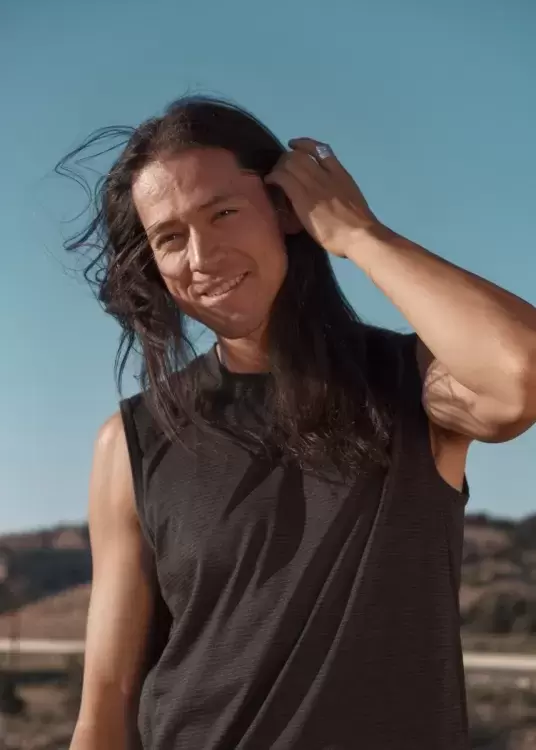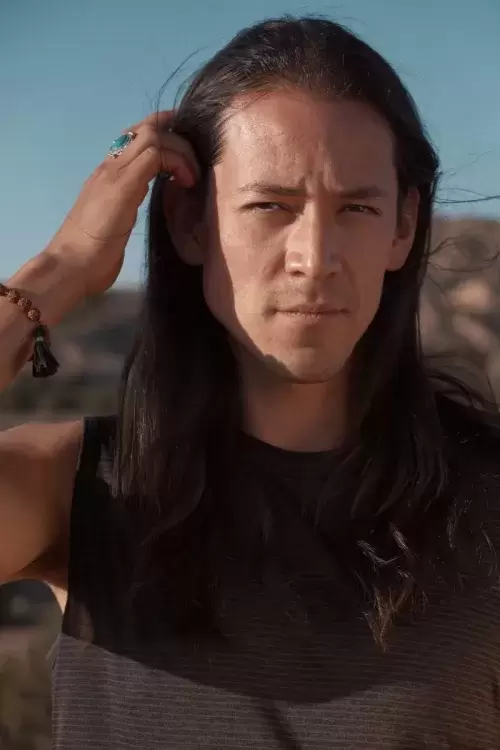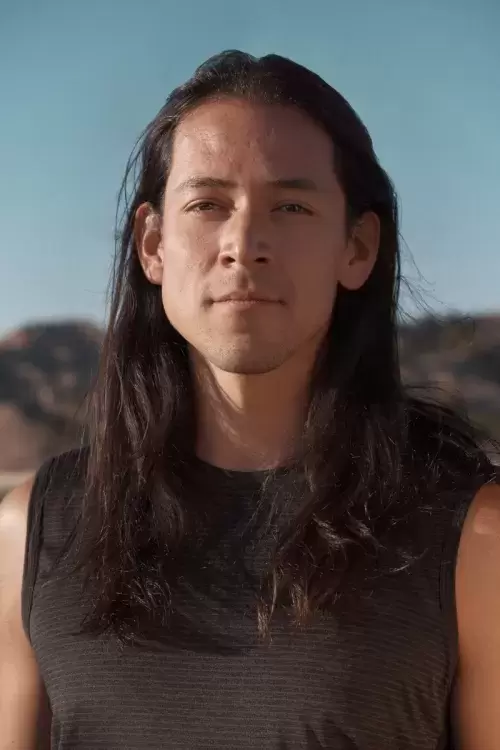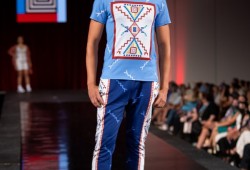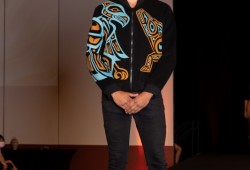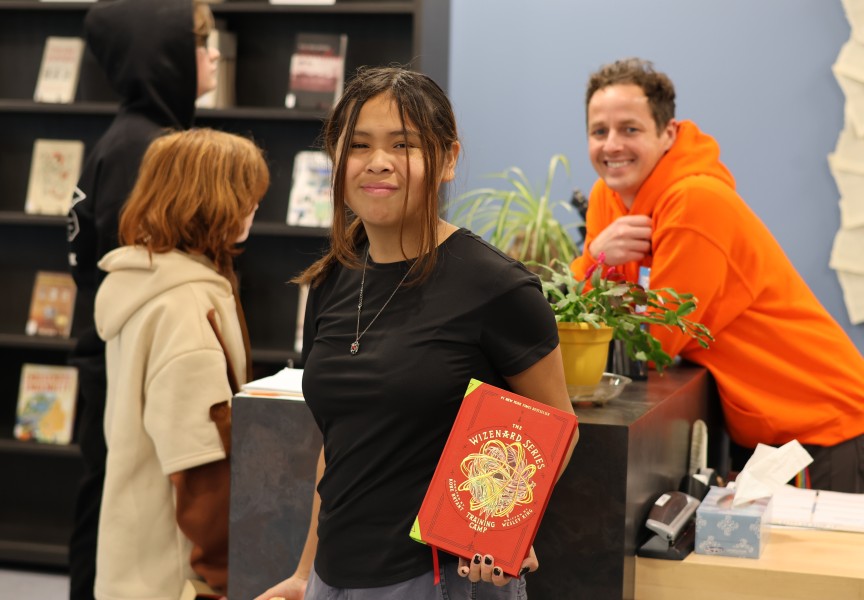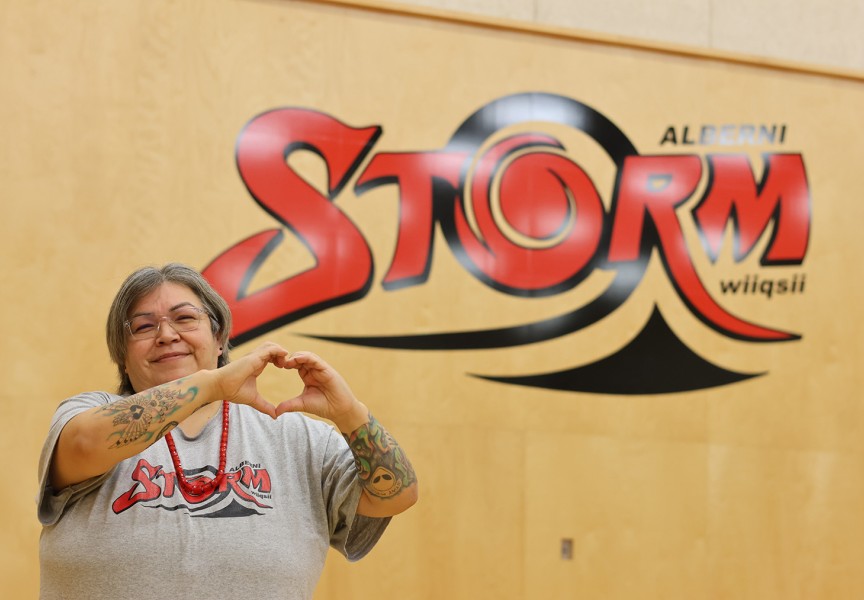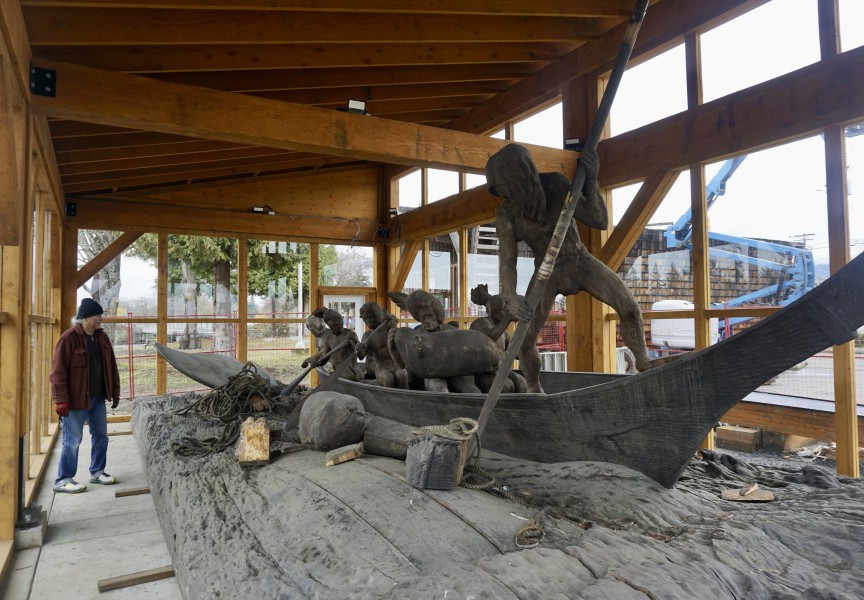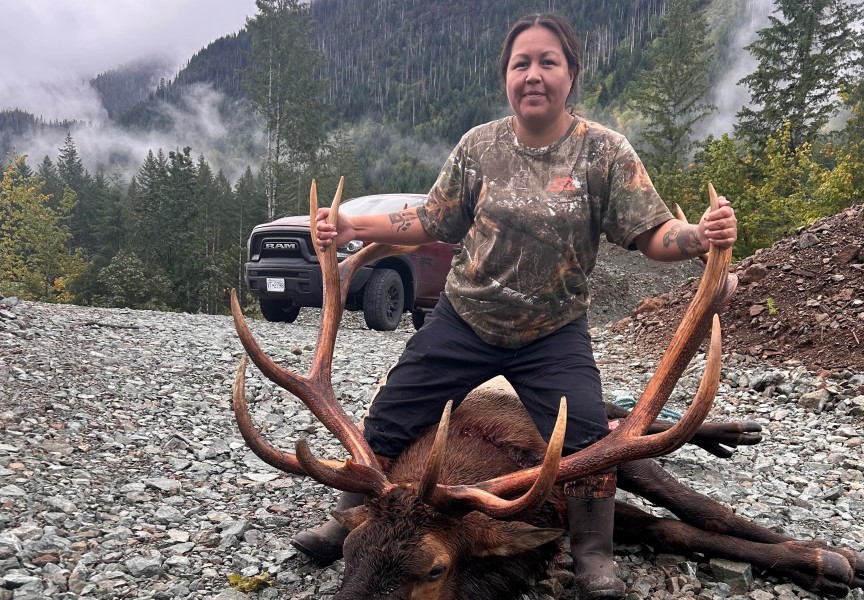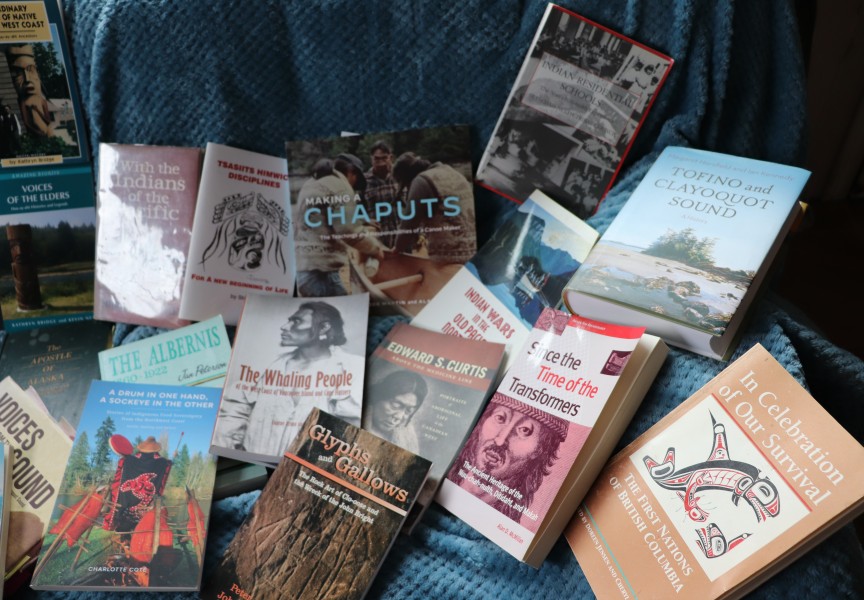Ricky-Lee Watts struggled with his confidence as a boy growing up in the small, coastal town of Port Alberni.
Like most teenagers, he was desperate to fit in and pretended the racial slurs his peers regularly used in conversation didn’t impact him.
“Folks would reject my identity as a Nuu-chah-nulth Indigenous First Nations person, and all that pressure, or the influence of my environment, caused me to reject a part of myself,” Watts said. “It hindered my ability to have a voice.”
Nowhere in mainstream media could he see himself reflected. The closest character he recalls relating to was Blade, who is half-vampire and half-human.
“I identify with someone who is walking in two worlds,” he said.
Instead, Watts described the media portraying Indigenous peoples as poverty-stricken drunks “without any value.”
“And that’s also what I heard from my peers,” he said. “There were no positive stories or examples I gathered from school that spoke to the strengths, or the wonder and beauty of Indigenous perspectives.”
A lot has changed for the now 28-year-old, who recently landed a contract with Supernaturals Modelling – Canada’s first all-Indigenous modeling agency.
Watts uses modeling as a way to speak for his younger self by harnessing his Nuu-chah-nulth identity.
“I strive to be the role model I needed when I was younger,” he said. “It's so important for young people to feel that sense of belonging, connection, and possibility.”
Supernaturals Modelling was launched less than a year ago by Joleen Mitton, a renowned Cree model and founder of Vancouver Indigenous Fashion Week, and Patrick Shannon, a Haida photographer and filmmaker.
The agency was formed in response to persisting issues about the misrepresentation and “tokenism” of Indigenous peoples within the media, entertainment and fashion industries, described Shannon.
“There's few opportunities for us because it hasn't been normalized for us to be seen as normal people,” said Shannon. “We’re always romanticized, if we aren't being vilified.”
The co-founders advocate for their models by thoroughly vetting their clients, turning down big names such as the Hudson’s Bay Company, whose beginnings are tied to the exploitation of Indigenous communities.
“Many of our models are from remote communities, and a lot of our models are former youth-in-care, Sixties Scoop descendants, descendants of residential school survivors, and Millennial Scoop [survivors],” said Shannon. “A lot of our models were taken away from their families and stripped away from their culture.”
Those specific histories need to be considered and advocated for, he said.
Indigenous peoples are more than background characters or a device for Leonardo DiCaprio, Shannon added.
When Watts was only 13 years old, he lost his father. In the two subsequent years, both his uncle and grandmother passed away. In a way, he said, he also lost his mother who coped with her traumas by turning to alcohol.
“[Supernaturals] isn’t an agency of strangers,” said Watts. “It’s a community and family – we’re all working towards a similar vision and have similar stories.”
Since Supernaturals launched last spring, Shannon said they’ve received nearly one thousand model applications from across North America, and several thousand more messages from Indigenous people saying “they’re seeing themselves for the first time.”
Similar to Watts, Shannon said that outside of “cowboy and Indian movies,” the only other time he saw Indigenous peoples on TV while growing up was in the news. The stories were limited to Indigenous people protesting, or being shot by white men, he said.
“When those are almost exclusively the narratives that you’re raised with, it does something to you,” said Shannon. “It really hits your confidence and doesn’t make you feel like you can succeed.”
Supernaturals is helping to reshape that narrative by elevating Indigenous voices.
By supporting their models spiritually, physically and mentally, Shannon said he hopes to equip them with the tools they need to feel more comfortable stepping into an industry that can be hostile and discriminatory.
“Every single Indigenous person that we work with has the potential to really succeed and thrive,” he said. “But just like anyone, we need our supports – we need our communities. And for a lot of our models, Supernaturals is their only one.”
Watts recently returned from a modeling trip to London, England where he served looks for Specsavers, a multinational optical retail chain.
He’s not sure where modeling will take him next, but is comforted knowing that young people might see themselves in him and feel like “they’re part of the fabric of the world.”
“I’m honouring [my parents], as well as my ancestors by making the most out of this life I’ve been gifted,” he said. “And part of that is challenging myself to stretch what I believe is possible, to experience new things and enjoy the splendour of life.”

